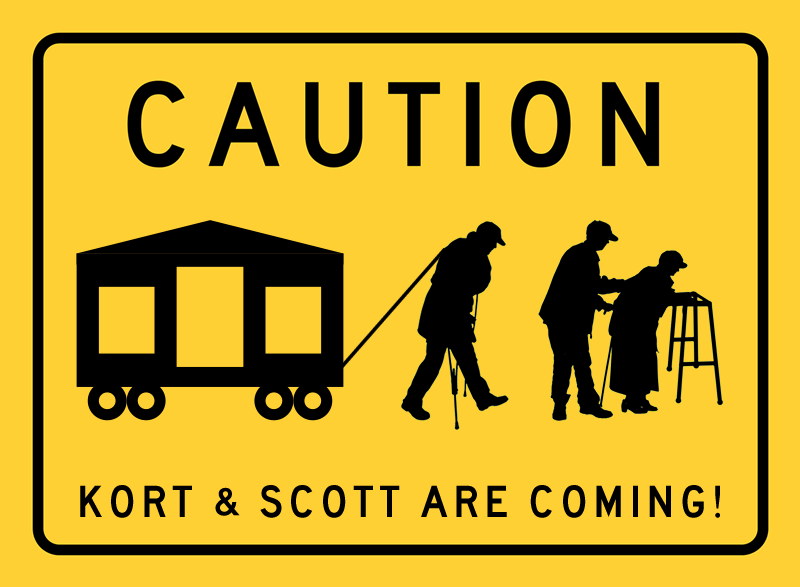Trial Preference in California Civil Cases
Trial Preference for Senior Plaintiffs 70+
Senior mobile home owners involved in civil lawsuits often wonder how long it will take for their case to proceed to trial. In California, severe budget cuts have resulted in significant reductions in personnel, overworked judges, and delayed trial dates. It is not uncommon for a straightforward civil case to take 2-3 years from the time of filing of the complaint to the time of trial.
California legislature provides protection to some parties, giving them preference to have their case tried sooner, within as little as 120 days. Trial preference is generally available to seniors over the age of 70 who are facing serious health issues and to minors under the age 14 in personal injury and wrongful death cases, we will focus on the seniors.
California Law on Trial Preference
California Code of Civil Procedure Section 36(a) allows any party who is 70 or older to seek Trial Preference. The court can grant the motion for preference request if it makes two findings:
- The party seeking preference has a substantial interest in the case, and...
- The health of that party is such that a preference is necessary to prevent prejudicing the party’s interest in the litigation.
Who May Seek Trial Preference?
Trial Preference is available to the elderly over 70 years of age in civil cases, and to parties in other cases based on the interests of justice. In cases involving minors, Trial Preference is mandatory; in cases involving the elderly, it is discretionary.
It is important to note that preference is not automatically available to all parties over the age of 70. Trial Preference exists to safeguard litigants beyond a specified age against the legislatively acknowledged risk that death or incapacity might deprive them of the opportunity to have their case effectively tried. Trial Preference is available to litigants who may not survive the delay. The elderly party seeking preference must demonstrate that they face serious health issues.
Procedures for Seeking Trial Preference
The party (70 or older) seeking preference must file a noticed motion or an ex parte application, supported by a declaration establishing good cause for the preference. Additionally, the court may require documentary proof of the party’s age.
Section 36(f) Provides:
Upon the granting of such a motion for preference, the court shall set the matter for trial not more than 120 days from that date and there shall be no continuance beyond 120 days from the granting of the motion for preference except for physical disability of a party or a party’s attorney, or upon a showing of good cause stated in the record. Any continuance shall be for no more than 15 days and no more than one continuance for physical disability may be granted to any party.
Code of Civil Procedure Section 36
-
- A party to a civil action who is over 70 years of age may petition the court for a preference, which the court shall grant if the court makes both of the following findings:
- The party has a substantial interest in the action as a whole.
- The health of the party is such that a preference is necessary to prevent prejudicing the party's interest in the litigation.
- A civil action to recover damages for wrongful death or personal injury shall be entitled to preference upon the motion of any party to the action who is under 14 years of age unless the court finds that the party does not have a substantial interest in the case as a whole. A civil action subject to subdivision (a) shall be given preference over a case subject to this subdivision.
- Unless the court otherwise orders:
- A party may file and serve a motion for preference supported by a declaration of the moving party that all essential parties have been served with process or have appeared.
- At any time during the pendency of the action, a party who reaches 70 years of age may file and serve a motion for preference.
- In its discretion, the court may also grant a motion for preference that is accompanied by clear and convincing medical documentation that concludes that one of the parties suffers from an illness or condition raising substantial medical doubt of survival of that party beyond six months, and that satisfies the court that the interests of justice will be served by granting the preference.
- Notwithstanding any other provision of law, the court may in its discretion grant a motion for preference that is supported by a showing that satisfies the court that the interests of justice will be served by granting this preference.
- Upon the granting of such a motion for preference, the court shall set the matter for trial not more than 120 days from that date and there shall be no continuance beyond 120 days from the granting of the motion for preference except for physical disability of a party or a party's attorney, or upon a showing of good cause stated in the record. Any continuance shall be for no more than 15 days and no more than one continuance for physical disability may be granted to any party.
- Upon the granting of a motion for preference pursuant to subdivision (b), a party in an action based upon a health provider's alleged professional negligence, as defined in Section 364, shall receive a trial date not sooner than six months and not later than nine months from the date that the motion is granted.
- A party to a civil action who is over 70 years of age may petition the court for a preference, which the court shall grant if the court makes both of the following findings:
Treble Damages for Seniors
The Senior Citizen Plaintiffs are entitled to treble damages under California Civil Code §3345 because this action is brought on their behalf to redress unfair or deceptive acts and/or practices, as alleged herein, and 1) Defendants knew or should have known that their conduct was directed to senior citizens; and/or 2) Defendants' conduct caused the Senior Citizen Plaintiffs' a substantial loss of assets essential to their health or welfare; and/or 3) Senior Citizen Plaintiffs are substantially more vulnerable than other members of the public to Defendants' conduct because of age, poor health or infirmity, impaired understanding and/or restricted mobility and actually suffered physical, emotional or economic damages resulting from Defendants' conduct.
California Civil Code §3345
- This section shall apply only in actions brought by, on behalf of, or for the benefit of senior citizens or disabled persons, as those terms are defined in subdivisions (f) and (g) of Section 1761, to redress unfair or deceptive acts or practices or unfair methods of competition.
- Whenever a trier of fact is authorized by a statute to impose either a fine, or a civil penalty or other penalty, or any other remedy the purpose or effect of which is to punish or deter, and the amount of the fine, penalty, or other remedy is subject to the trier of fact's discretion, the trier of fact shall consider all of the following factors, in addition to other appropriate factors, in determining the amount of fine, civil penalty or other penalty, or other remedy to impose. Whenever the trier of fact makes an affirmative finding in regard to one or more of the following factors, it may impose a fine, civil penalty or other penalty, or other remedy in an amount up to three times greater than authorized by the statute, or, where the statute does not authorize a specific amount, up to three times greater than the amount the trier of fact would impose in the absence of that affirmative finding:
- Whether the defendant knew or should have known that his or her conduct was directed to one or more senior citizens or disabled persons.
- Whether the defendant's conduct caused one or more senior citizens or disabled persons to suffer: loss or encumbrance of a primary residence, principal employment, or source of income; substantial loss of property set aside for retirement, or for personal or family care and maintenance; or substantial loss of payments received under a pension or retirement plan or a government benefits program, or assets essential to the health or welfare of the senior citizen or disabled person.
- Whether one or more senior citizens or disabled persons are substantially more vulnerable than other members of the public to the defendant's conduct because of age, poor health or infirmity, impaired understanding, restricted mobility, or disability, and actually suffered substantial physical, emotional, or economic damage resulting from the defendant's conduct.

Author Note
We'd like to thank Paul Masminster, President of Save Our Souls (SOS), the HOA for Royal Western Mobile Home Park in Gardena, California, for alerting the MHPHOA to the California Code of Civil Procedure Section 36.
Stop Predatory Park Owners

Kort & Scott Pay $57,000,000
Largest Mobile Home Park Settlement Ever
Fri, Nov 22, 2019 – Kabateck LLP attorneys representing hundreds of low-income mobile home residents in Long Beach, California secured a nearly $57 million settlement, which is the largest settlement ever involving a mobile home park.
